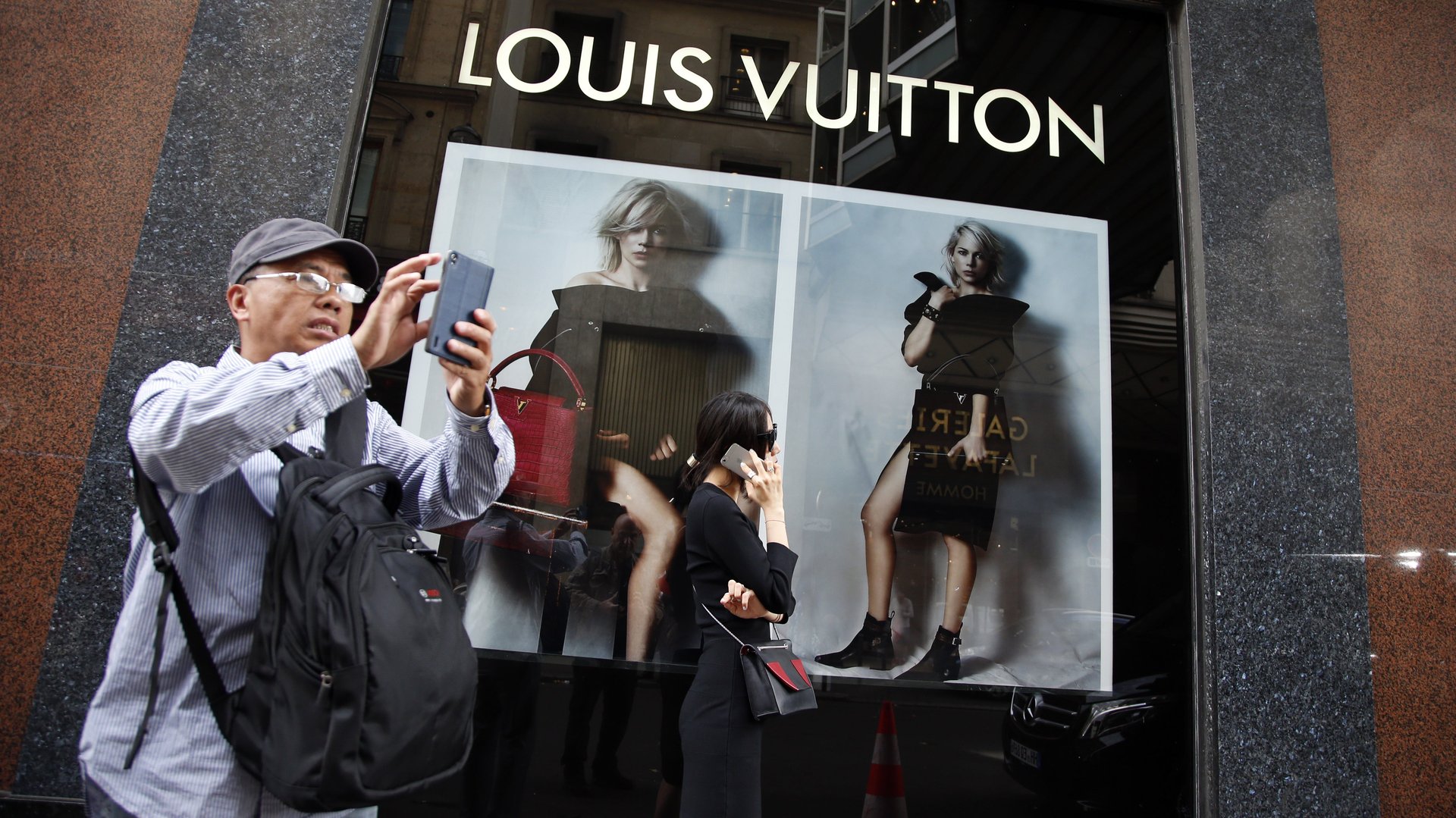A spending freeze by high-rolling Chinese tourists is scaring Europe’s luxury industry
Chinese shoppers buy more luxury goods than anyone else in the world. They account for 31% of global luxury purchases, according to consulting firm Bain & Company. They also do about 80% of their buying outside mainland China, where currency exchange rates and import tariffs mean higher prices. For these shoppers, Bain says (pdf, p. 5), Europe has become “the world’s largest in-season outlet.”


Chinese shoppers buy more luxury goods than anyone else in the world. They account for 31% of global luxury purchases, according to consulting firm Bain & Company. They also do about 80% of their buying outside mainland China, where currency exchange rates and import tariffs mean higher prices. For these shoppers, Bain says (pdf, p. 5), Europe has become “the world’s largest in-season outlet.”
European luxury labels have come to rely on the Chinese for a big chunk of their sales. But a new report by Global Blue, which processes travelers’ tax-free payments, finds that spending by Chinese tourists slowed substantially last month, in part because of the recent terror attacks in Europe. For companies such as Prada, Burberry, and LVMH, which owns Louis Vuitton, Fendi, and other high-end labels, that could hurt sales, especially as mainland China’s luxury market contracts.
Chinese spending plummeted 24% in March after rising 5% in February and 11% in January compared to the same months last year, according to Global Blue.
March sales competed with particularly strong numbers in 2015 when sales jumped 122% in part because of the late Chinese New Year. But the terrorist attacks in Brussels and Paris are scaring the Chinese. Global Blue surveyed about 5,000 Chinese travelers, and 56% cited safety as a factor in picking a travel destination. Prada and LVMH have already cited the attacks for hurting their results. Hermès said the attacks could continue to cloud sales in the year ahead.
The worst of the slowdown related to the terror attacks may have happened in the first quarter of the year. Global Blue expects May to be one of the biggest months for Chinese travel. Top destinations include Europe, South Korea, and Japan, which has become such a popular destination for Chinese splurging that the Japanese now have a word for explosive Chinese shopping sprees. Chinese travelers spend, on average, nearly 26,000 yuan (about $4,000) per trip to Europe, and just over 18,000 yuan (about $2,780) per trip to Asia, Global Blue said.
James Morris, the company’s chief marketing officer, says retailers should prepare by hiring Chinese-speaking staff—an increasingly common scenario in Europe—and by letting shoppers buy in their own currency. ”Shopping remains a fundamental part of the travel experience for many Chinese and despite a slowdown in tax-free shopping spend over the last quarter, this group remains hugely valuable to the luxury sector,” he says.
Last year, Deutsche Bank estimated some brands get 35% or more of their revenue from Chinese shoppers, both domestically and while traveling. It’s no wonder high-end stores look for staff who can sell to them in their own language.